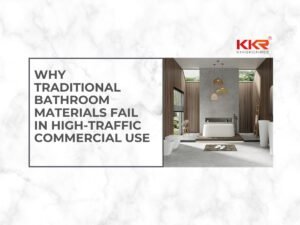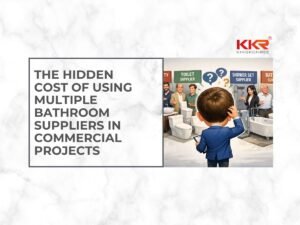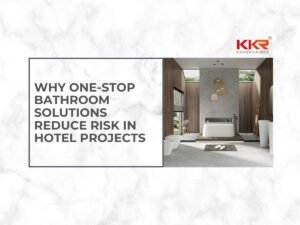— A Practical Guide for Global Buyers to Identify Reliable Suppliers
When sourcing bathroom basins, bathtubs, or shower trays, especially for commercial use or hotel projects, the market is full of attractive offers. But beyond aesthetics, certified bathroom product suppliers offer something more important: tested safety, reliable quality, and peace of mind. But as a buyer, how do you know which suppliers are truly reliable?
One powerful tool?
Certifications — but not just any certificate. The right certifications help you quickly filter out low-end manufacturers and verify real quality, safety, and compliance.
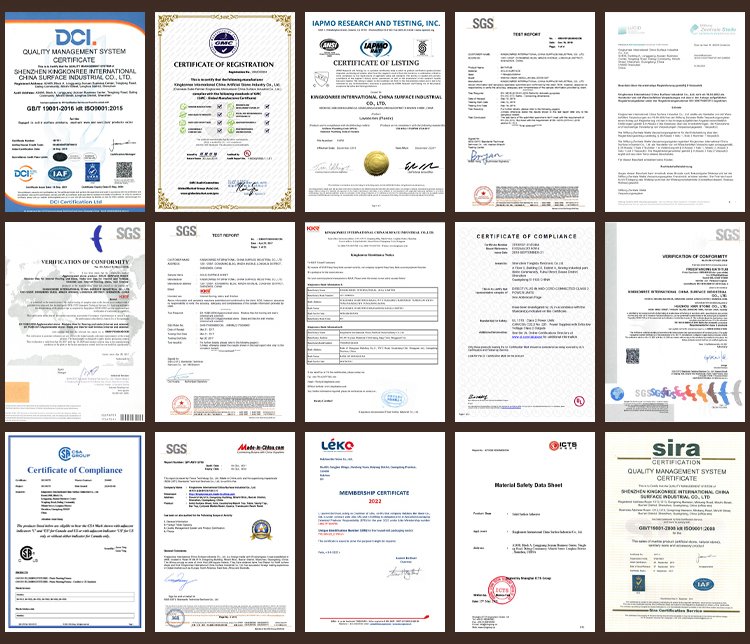

Here’s a practical breakdown of what certifications matter most and how to interpret them based on your target market.
Why Certifications Matter in Supplier Evaluation
Think of certifications as a shortcut to trust.
✅ They prove the supplier meets recognized international or regional standards.
✅ They save time in product approval or import processes.
✅ Most importantly, they indicate the supplier’s maturity and professionalism.
Many low-cost suppliers may skip these entirely — or worse, show fake ones.
So learning to read them correctly is a key skill for buyers.
Region-by-Region: What Certifications to Ask For
Europe
Recommended Certifications:
CE (Conformité Européenne): Legally required in Europe for most custom bathroom products, including solid surface vanity tops, CE-certified basins, and wall-mounted accessories with lighting components like LED mirrors
EN 13501: Fire safety standard — often asked for in hotel or public project tenders.
REACH: Ensures the use of non-toxic materials — especially important in solid surface materials.
Buyer Tip:
Ask for the supplier’s CE declaration, not just a logo. Check if fire testing is done through third parties like SGS or TÜV.
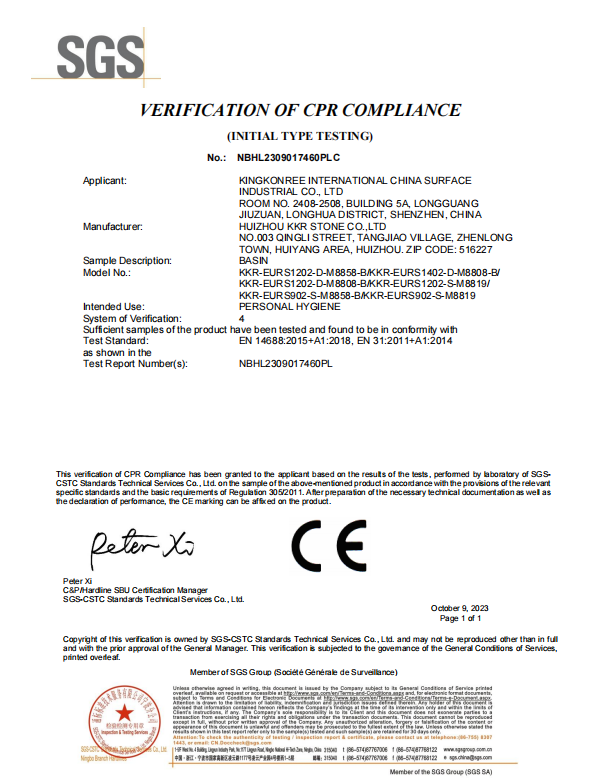

United States & Canada
Recommended Certifications:
UPC (Uniform Plumbing Code): Ensures fixtures comply with plumbing standards.
SGS or Intertek Test Reports: Validate claims such as impact resistance, scratch-proof surfaces, or chemical durability.
NSF (for kitchen/bath cross-use): Shows hygiene standards for contact surfaces.
Buyer Tip:
If you’re sourcing multi-unit buildings or hotels, test data from labs like SGS is more convincing than just verbal guarantees.
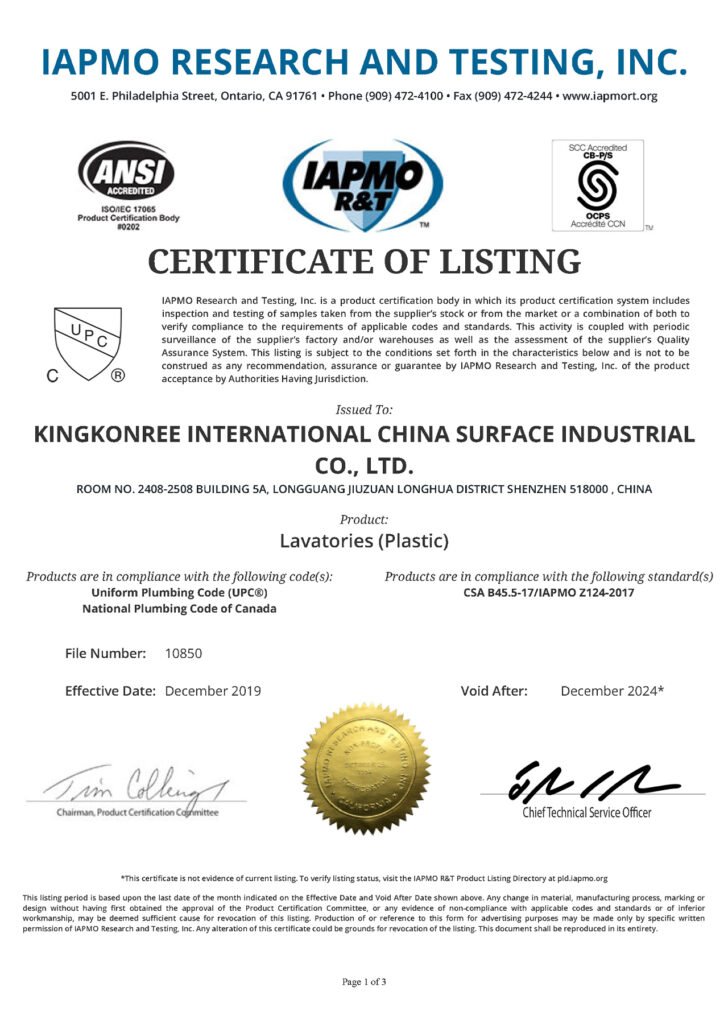

Middle East
Recommended Certifications:
ISO 22196: Antibacterial test — key for spa, hotel, and medical use.
EN 13501 or Civil Defense Approval: Fire safety is a priority, especially in Saudi Arabia and the UAE.
SASO (Saudi Standards): Check if the supplier can upload via the SABER system for customs clearance.
Buyer Tip:
Request antibacterial test reports with actual lab stamps and test conditions (e.g., bacteria strain, test duration).
Southeast Asia / Australia
Recommended Certifications:
ISO 9001: Assures consistent production quality.
SGS Mechanical Property Reports: Especially for distributors seeking long-term reliability.
WaterMark (Australia): Mandatory for plumbing fixtures in AU/NZ.
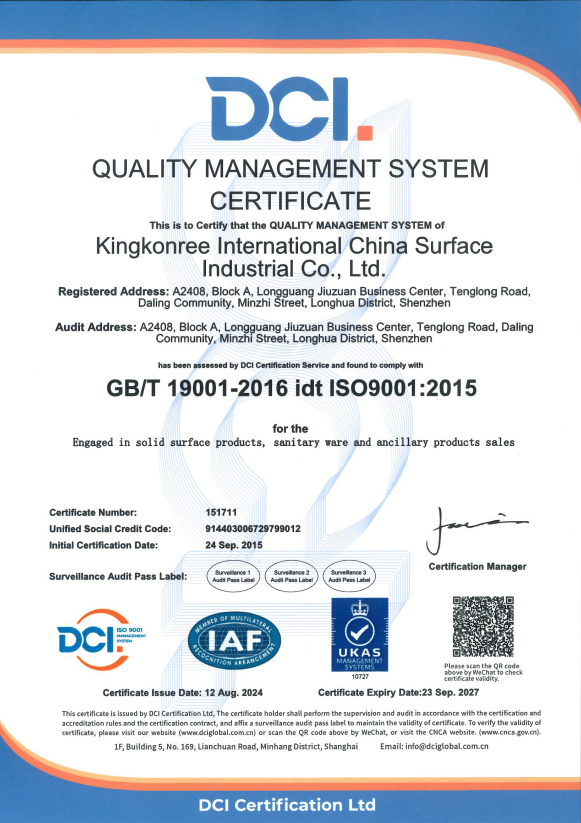

Buyer Tip:
A supplier with ISO 9001 and stable SGS results often means fewer headaches for warranty issues later.
How to Spot a Reliable Supplier Using Certifications
Here’s a simple 4-step buyer checklist:
1. Do they proactively offer certification documents?
A quality supplier often includes certificates in catalogs or proposals.
2. Are the certificates relevant to your market and product type?
CE for EU, UPC for US, and ISO for global — each project needs different proof.
3. Are the documents issued by reputable organizations?
Look for SGS, TÜV, Intertek, and BSI — not “self-issued” PDFs.
4. Do certifications match the claimed materials/processes?
If they say antibacterial surface, there should be ISO 22196 results. For fireproof? EN 13501 is the standard.
✅ Final Advice: Certifications Are Your First Filter — Not the Only One
Certifications help you narrow your supplier list, but reliability also comes from:
- Clear technical communication
- Flexible customization abilities
- Consistent export experience
- Transparent QC and material control
Frequently Asked Questions About Product Certifications
Q1: What is the difference between CE and SGS?
A: CE is a declaration for legal compliance in Europe. SGS is a third-party test organization that validates performance, like durability or safety.
Q2: Are fake certificates common in the industry?
A: Unfortunately, yes. That’s why buyers should check if documents are traceable, contain lab stamps, and match real testing conditions.
Q3: Do I need different certifications if I buy for hotels vs. retail?
A: Possibly. Hotel and public space projects often require fire or antibacterial proof (EN13501, ISO 22196), while retail may focus more on packaging and CE/UPC.
Q4: Can KKR® help me verify other suppliers’ certificates?
A: Yes, we’re happy to share what a real test report looks like so you can compare and judge more effectively.
At KKR®, we offer a wide range of custom-made wash basins, UPC-compliant bathtubs, and fire-rated vanity tops — all manufactured in our solid surface factory in China. Our products are frequently used in high-traffic areas such as luxury hotels, hospitals, and airport restrooms, where certifications like EN13501, REACH, and ISO 9001 are standard expectations.
Need help verifying a supplier’s certificate? Or want to see what a trustworthy set of documents looks like?
Reach out to us —we’re happy to share examples.
